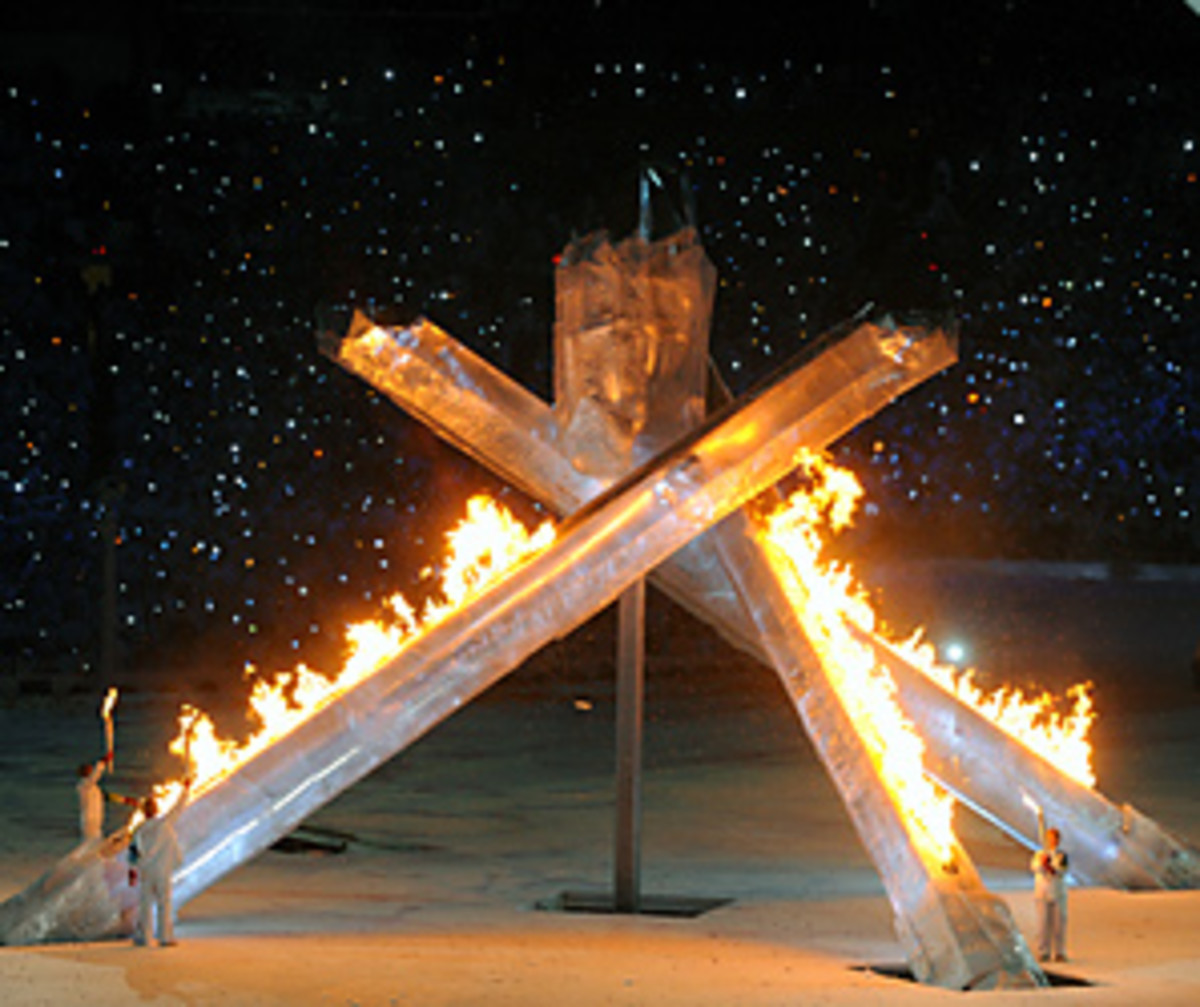Gaffes galore at the Glitch Games
I want to be careful how I say this, lest I come off as an arrogant American casting stones from a house of crystal. For the fact is, the U.S. has staged two of the least satisfying Olympics ever: The 1996 Summer Games in Atlanta, a festival of tastelessness that had all the atmosphere of spring break; and the 1980 Winter Games, which made "organized by Lake Placid" a gag line among international sports officials and press for years. But the list of glitches at these Olympics, already long, grew by two on Tuesday.
• The Vancouver Organizing Committee (VANOC) had sold some 28,000 standing-room tickets at $50 each for snowboarding at Cypress Mountain. But with the snowpack vanishing from the area where spectators were to stand, putting fans at risk of falling into crevasses between hay bales underfoot, organizers canceled the tickets, and chose to offer $1.5 million in refunds.
• Then at biathlon, because of timers' errors three women competitors began their races late and two men were sent off early, all of which had officials screaming, "Stop the race!" In the end, each finishing time was adjusted and no harm done.
But both episodes now find themselves on that lengthening list.
Some problems go back weeks: the $250 million cost overrun on the Olympic Village, for instance. And the directive, later rescinded, that ordered artists to avoid any negative content about the Games or its sponsors if they wanted to contribute to the Cultural Olympiad.
Then came Day One and the death of Georgian luger Nodar Kumaritashvili in a training run on a track that had already been described as perilous. The tragedy made a trifle of what England's The Guardian called "erectile dysfunction" -- the failure of that hydraulic cauldron shaft to rise during the climactic scene in the Opening Ceremony.
Over the past days the parade of pratfalls -- and worse -- has continued apace: delays caused by too much or too little snow or rain; lost or late buses that leave athletes and fans aggravated; vandalism, assaults and pitched battles between police and protestors on downtown streets; ice-resurfacing machines on the fritz at the Richmond Olympic Oval; a collapsed barricade at an Olympic concert that left 19 people injured. Canadians themselves were livid at the "imprisonment" of the Olympic torch behind a tawdry chain-link fence, ostensibly for its own protection, that obscured the views for thousands of fans who'd come downtown to see the quintessential symbol of the Games.
You can't blame organizers for weather-related screw-ups and certainly can't second-guess a decision, like the ticket cancellation at Cypress, based on safety. You can understand why VANOC opted for green and home-grown suppliers where possible (the battery-powered Canadian-made Olympia ice-resurfacers instead of the propane-fueled, American-made Zambonis), even if it would have made sense to keep a fleet of backups at the ready so they wouldn't have to call in the Zamboni cavalry from Calgary. And I'm guessing a lot of people are ready to make a deal with VANOC, the International Luge Federation and the IOC: We won't blame you for Kumaritashvili's death if you don't blame the victim.
But the Glitch Games would be a whole lot easier to take if the Canadians weren't in the throes of a medal-grubbing campaign to lord it over their guests -- an effort to rival Americans at our jingoistic worst.
A flood of public and private money to improve Canada's performances at these Olympics spawned two programs: Own the Podium and B2ten. The first has involved not just spending $120 million of public funds to improve the chances of Canada's Olympians, but also barring or limiting access for non-Canadians to Canadian venues -- the source of Stephen Colbert's charge that the hosts are being "iceholes."
The second program, which stands for Business 2010, has led to wealthy Canadians' spending up to $1 million a year to support 18 athletes during the run-up to these Games. Think college boosters in the States, only with no NCAA rules to break.
Canadian IOC member Dick Pound has called athletes who aren't medal contenders "tourists" -- a jarring note from a man who nearly beat out Jacques Rogge to head the organization founded by Pierre de Coubertin to exalt "the taking part."
As Canada seems less and less likely to harvest close to the number of medals it aspired to, I'm reminded of the social graces of Viennese composer Richard Wagner, a man whose music a critic once described as "better than it sounds." Wagner would invite friends over, sit them in his parlor and serenade them with his latest four-hour work. For me that analogy gets just about right the insecurity, the oafish hospitality and the failure to match the talk with the walk.
I'm not saying you can't do two things at once. A great nation -- and Canada is that, by any standard -- should never regard hosting a superb Olympics on the one hand, and excelling competitively on the other, as mutually exclusive. But two such grand ambitions, set side-by-side during such a brief window of time, are likely to find themselves at cross-purposes. At the very least the optics need careful tending to.
For the final word, this American will bring in a Canadian -- Bruce Kidd, dean of the health and P.E. department at the University of Toronto, who told The Globe and Mail last week: "We're saying, 'World, come to Canada so we can beat the s--- out of you.'
"'Own the Podium' would have made a great [Canadian] slogan for London, 2012. But not when we're hosting the Games."






